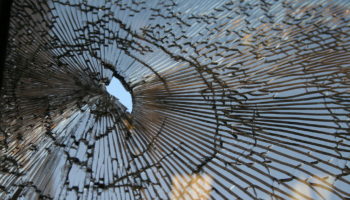Tell us about yourself. What have you been doing and what are you working on during this COVID-19 lock-in.
I’m an author and pastor, although I find it difficult to be both at once! This fall I’ll celebrate my 30th anniversary of ordination, and for the last nine years I’ve put a lot of energy into writing while pastoring part-time.
Two of my three books could be classified as “spiritual memoir.” Chasing the Divine in the Holy Land (Eerdmans, 2012) takes the reader along on a transformative pilgrimage to Israel and Palestine. Ruined (Tyndale, 2016) tells the story of a traumatic experience of sexual violence when I was 20 years old, and explores how that shaped my life and faith through the next decade.
My new book (InterVarsity Press, Jan 2020) is The #MeToo Reckoning: Facing the Church’s Complicity in Sexual Abuse and Misconduct. In this book I widen my lens to tell other people’s stories as well as my own, and intertwine those stories with scripture.
So far during this Covid-19 lock-in, I’ve been following up on podcasts and articles related to my #MeToo book launch. My speaking engagements have been cancelled, of course, so I’m doing more videos and webinars than I had planned to do.
I would love to begin to think about “the next thing” but it’s been challenging to find mental and emotional bandwidth during a time of global distress!
2. Which aspects of your work past and present might be particularly interesting for supporters of the Shiloh Project?
My memoir Ruined explores how my religious upbringing shaped my response to a brutal rape by two African-American strangers — and the response of the Calvinist faith community in which I was submerged. The title is a synonym for shame, which engulfed me. My viewpoint alternates between the 20-something Ruth who felt ruined, and the self who became a pastor and found healing in a larger faith tradition.
My more recent book is The #MeToo Reckoning: Facing the Church’s Complicity in Sexual Abuse and Misconduct. The interplay between current and ancient stories of abuse may be of particular interest to the members of the Shiloh Project. In the introduction I itemize the lenses I bring to the work: “My interest in sexual assault and faith is not academic. I wrote this book because I felt called by God to do so, and could find no excuse to refuse (although I did search for one). I bring certain lenses along with me. As a rape survivor, I am passionate about justice for victims and accountability for victimizers. As a former “good girl,” I am conversant with the conservative subculture. As a committed Christian, I am tenacious about loving Jesus, who first loved me. As a pastor, I spend my days swimming in Scripture. As a wife, I am one half of what turned out to be an egalitarian marriage, thirty-five years and counting. As a mother, my heart walks around outside my body with two daughters, a fact that will keep me poking and prodding the church toward greater gender equality as long as I live. Most of all, as an author, the response to my earlier writing about assault has softened my heart and thickened my skin. I will not be bullied by blowback or made callous to the plight of my sister survivors, and brothers as well. It is time for a reckoning.”
3. How are you bearing up and what’s helping you most?
I am in a very fortunate situation. I am “locked-in” with my husband, with whom I am very companionable. There is plenty of room and quiet for each of us to pursue our own work. We are doing yoga each day and going for walks in the fresh air as often as possible.
We are very grateful for technology which allows us to see the faces of our loved ones — our two grown daughters who each live alone about an hour’s drive from our home, and our two aged mothers, each living in a facility a great distance from us.
Every one of us is living with a great deal of pain and loss right now, on a personal level and a societal level. I find that naming these losses — even trivial ones — and then naming that for which I am grateful, helps me feel more centered and settled during this most unusual Lent. Because I tend toward the contemplative, the practice of praying for others is also essential.
I also look forward to a few ounces of tawny port and a dose of Netflix each evening!
4. Send us a picture to capture you or your work in these COVID-19 days.
I do quite a bit of supply preaching, and had agreed to help a local Presbyterian congregation for a few weeks, which turned out to be the beginning of lockdown. The picture, taken by my husband, is of me preaching via FB Live in my study, with an improvised worship space created by a purple stole, a cross on the wall, and a few sprigs of forsythia.






